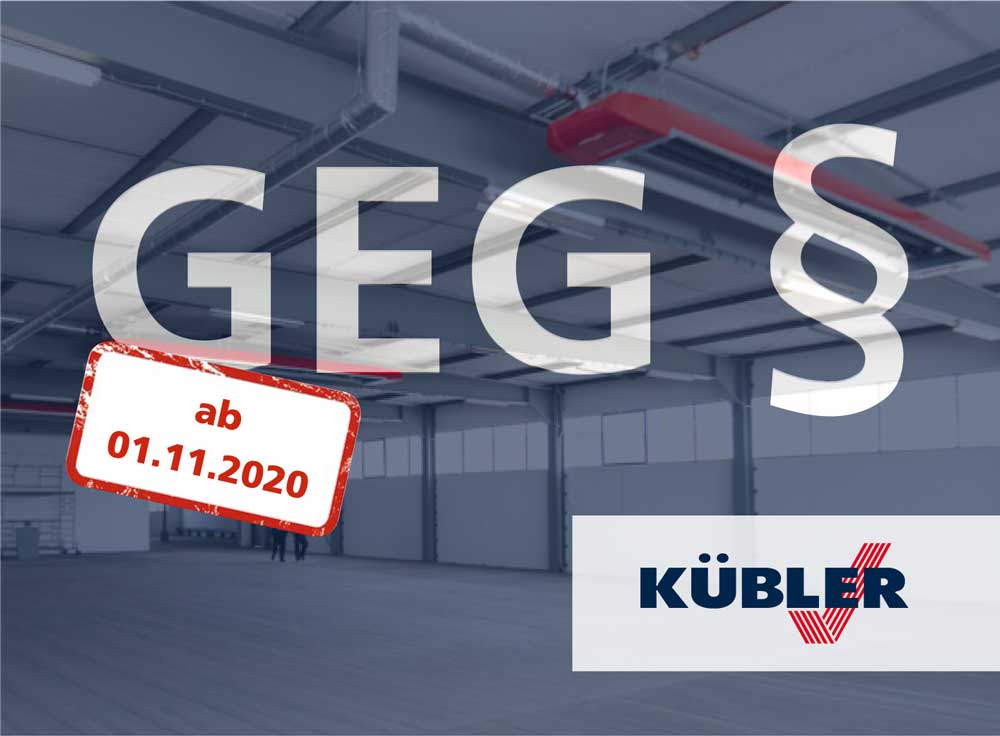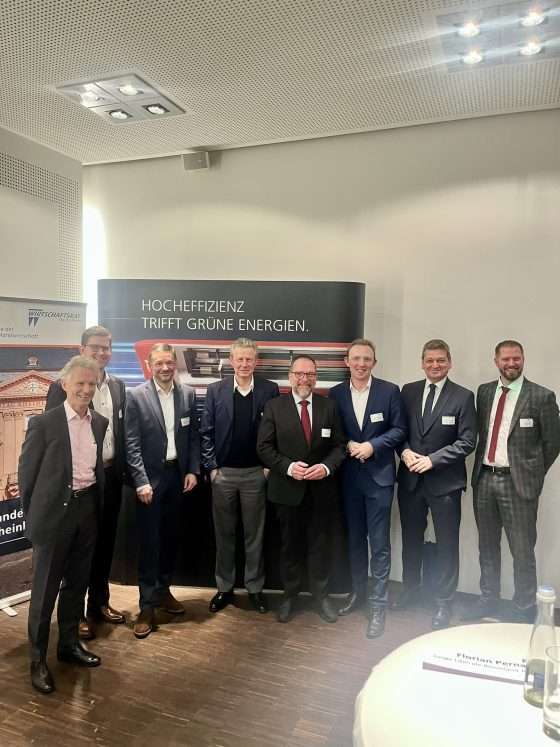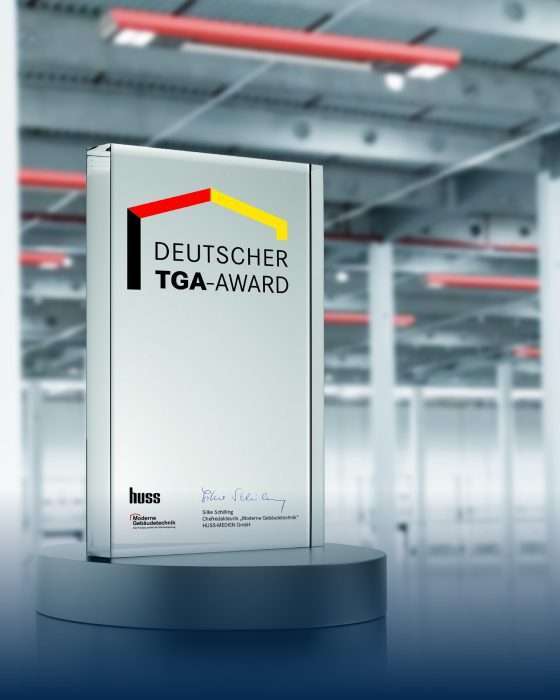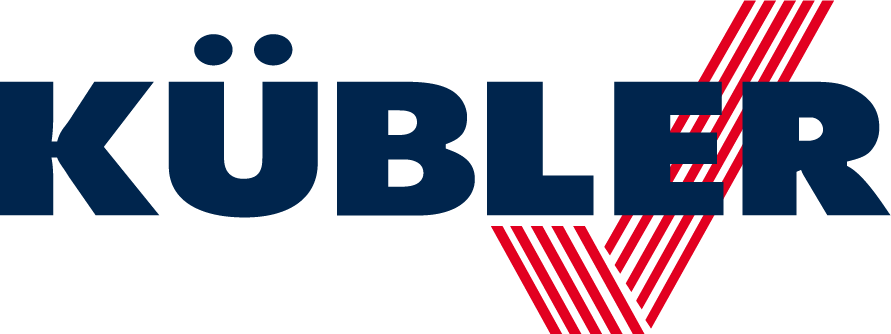New law highlights the efficiency of decentralized infrared heating systems - GEG comes into force on 01.11.

The Building Energy Act (GEG) will regulate energy requirements and the use of renewable energies for heating and cooling. This applies to both new and existing buildings. It replaces the previous regulations EnEV, EEWärmeG and EEG. When the GEG comes into force on November 1, 2020, these laws will be a thing of the past.
"And that's a good thing," says Thomas Kübler, Managing Partner of KÜBLER GmbH. According to KÜBLER, it has taken 11 years - from 2008/2009 to the present day - to correct the technical errors in the legislation in terms of openness to technology. The creators of the EnEV, EEWärmeG and EEG at the time focused on substitution with renewable energies and therefore on hydraulic systems, which are significantly less efficient and suitable in this respect. The issue of energy efficiency as the second central pillar of the energy transition was simply overlooked. "There was a failure to take a differentiated view of non-residential buildings. Due to their ceiling heights, hall buildings are subject to completely different physical and therefore heating requirements than kindergartens, for example," explains KÜBLER. Although this differentiation was supplemented with the new versions of the EnEV and EEWärmeG, it took until 2020 to open up the legislation to high-efficiency technologies such as decentralized infrared heating.
"This is really good news for building owners, especially in the area of new builds. The GEG finally takes into account energy-efficient technologies that achieve more and are more economical at the same time."
says Thomas Kübler. With the new law, heating technologies can now also be used without any problems, which are clearly superior not only in terms of energy efficiency but also in terms of ease of use. In addition, there is another welcome effect: "From an overall economic perspective, operators of hall buildings now have many more design options available to them to achieve energy efficiency in their companies. And at significantly lower investment costs."
For years, affected companies and associations have been fighting for the revision of the EEWärmeG. A uniform, coordinated set of regulations for the energy requirements for new buildings, existing buildings and the use of renewable energies for heating and cooling was called for. The regulations were intended to bring together the various laws on building energy efficiency and heat use and significantly simplify the previously highly complex and difficult to understand landscape of energy-saving legislation for building owners and planners. Drafts of this law have been available since 2017. After endless postponements over legislative periods, the GEG was adopted on June 18 based on the recommendation of the Committee on Economic Affairs and Energy in the Bundestag with the votes of the CDU/CSU and SPD. The Bundesrat approved the law on July 3. With its publication in the Federal Law Gazette on August 13, it is now clear that the GEG will enter into force on November 1, 2020.
"Now we finally have a regulation that is open to all technologies and no longer excludes highly efficient systems that are tailored to the specific requirements of large room heating simply because the designers have worked in an undifferentiated manner," says KÜBLER. The guiding principle "Efficiency first" is finally gaining in importance. In concrete terms, this means When the GEG comes into force, hall buildings or zones with a room height of more than 4 meters that are heated with decentralized technologies such as infrared radiant heating will be exempt from the obligation to use renewable energies.
Interested in our press photos?
Would you like to download all images from the article in the highest quality? Simply click on the button below and enjoy our press photos in the highest resolution!
-
While the public debate has so far focused heavily on residential construction, specific questions arise for industrial and logistics companies: what are the implications for large-volume non-residential buildings such as production and logistics halls? Thomas Kübler, an expert in energy-efficient hall heating systems, explains the key points from a practical perspective. Climate neutrality remains the guiding principle The German government is sticking to its goal of climate neutrality [...]
-
„Anyone who is nominated for the ‘Großer Preis des Mittelstandes’ belongs to the elite of German SMEs. This nomination alone is already an award of the highest quality,“ emphasizes Barbara Stamm, President of the Bavarian State Parliament. Outstanding achievements in five areas In the competition, the KÜBLER company is assessed in its entirety and its role within society. The [...]
-
Ludwigshafen - Clear messages, clear expectations: At the annual reception of the Rhineland-Palatinate Economic Council at the main site of KÜBLER GmbH, host Frederic Renz had clear words to say about the economic situation. „SMEs need what all companies in Germany urgently need: a clear direction and reliable political framework conditions. If you want economic growth, you have to create planning security,“ emphasized the Managing Director of the hall heating specialist. Around [...]
-
Heating halls efficiently, economically and functionally is a challenge. Because in these huge buildings with ceiling heights that often reach 20 meters, a lot of energy can quickly be consumed - energy that is expensive and, depending on the heating technology used, also causes high emissions. The building stock is often still equipped with inefficient and [...]





